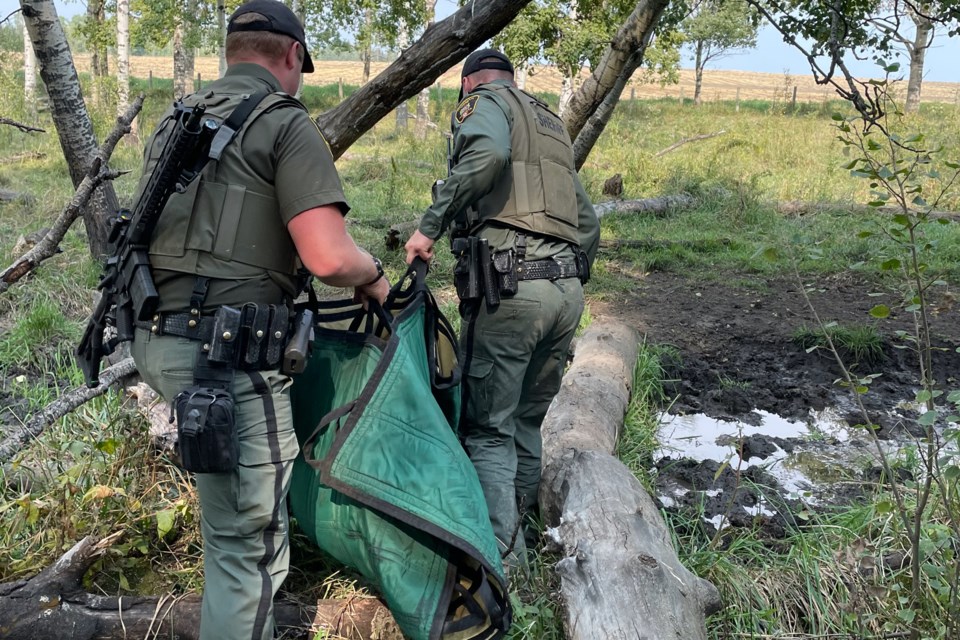SUNDRE — A mama grizzly bear was successfully captured and relocated to a remote area by the local Fish and Wildlife branch after livestock was reportedly killed at an undisclosed feedlot in the region.
On Sunday, Sept. 11, Sundre Fish and Wildlife Enforcement Services received a report of livestock being killed at a feedlot producer, reads a portion of a statement issued by Justice and Solicitor General media communications.
The investigation “determined that a sow and three cub grizzly bears were involved,” reads a portion of the statement given to the Albertan.
Upon further evaluating the situation, officers also determined the bears would need to be relocated to ensure the public’s safety.
By Tuesday, Sept. 13, the entire family of grizzly bears was captured.
“They were relocated together in a more suitable remote habitat the following day.”
A spokesperson told the Albertan in response to follow-up questions that the feedlot is located southeast of Sundre in Mountain View County, and that the livestock involved was a single steer.
Producers who suffer lost or injured livestock to wild animal attacks can be compensated for their loss under the Wildlife Predator Compensation Program.
“This is an important reminder that by late summer and early fall, bears’ appetite will increase to gain enough calories to sustain hibernation throughout the winter,” the statement added.
“Many of the natural food sources that bears have relied on during the summer period may no longer be available, so bears will travel more in order to find another food source.”
It is therefore crucial that people make a concerted effort to ensure possible attractants are properly sealed and secured.
“Bears coming into residential areas to feed on unnatural food sources is a public safety risk because they are easily habituated and may defend the food source,” officials said.
When that happens, the animals often become deemed problematic and could potentially have to be euthanized to protect people and property.
To avoid such situations from materializing in the first place, people are encouraged to follow these tips:
• Store garbage in bear-resistant and odour-proof containers or buildings until it can be removed from your property;
• Clean up and remove any possible attractants as soon as possible, if not immediately, to avoid habituation of bears and other wildlife;
• Never leave pet food outside or stored in areas accessible to bears;
• Avoid using bird feeders from April 1 to November 30;
• Clean barbecues and outdoor eating areas after use;
• Store smokehouses and animal carcasses, including bones, hides and waste, in bear-resistant buildings away from people;
• Properly maintain or remove gardens and fruit-bearing trees or shrubs, as they can attract bears;
• Consider using an indoor composter;
• Aerate outdoor compost piles frequently and cover these with soil or lime;
• Do not put meat, fish, oils and milk products in compost piles.
Residents who encounter a bear or other wildlife that could potentially pose a public safety concern are advised to report the incident to the 24-hour Report a Poacher line at 1-800-642-3800.



